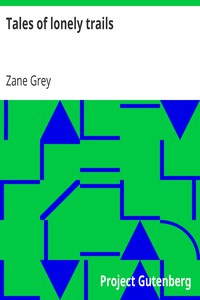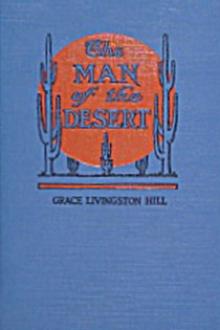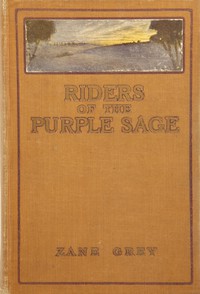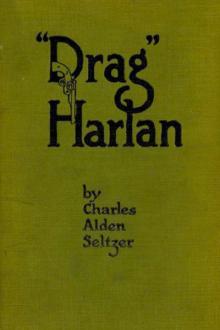Tales of lonely trails, Zane Grey [best ebook reader for chromebook .txt] 📗

- Author: Zane Grey
Book online «Tales of lonely trails, Zane Grey [best ebook reader for chromebook .txt] 📗». Author Zane Grey
All the men had returned, and all the hounds except Buck. I was rather surprised and disturbed to find the Haughts in a high state of dudgeon. Edd looked pale and angry. Upon questioning Nielsen I learned that the hounds had at once struck a fresh bear track in See Canyon. Nielsen and Edd had not followed far before they heard a hound yelping in pain. They found Buck caught in a bear trap. The rest of the hounds came upon a little bear cub, caught in another trap, and killed it. Nielsen said it had evidently been a prisoner for some days, being very poor and emaciated. Fresh tracks of the mother bear were proof that she had been around trying to save it or minister to it. There were trappers in See Canyon; and between bear hunters and trappers manifestly there was no love lost. Edd said they had as much right to trap as we had to hunt, but that was not the question. There had been opportunity to tell the Haughts about the big number four bear traps set in See Canyon. But they did not tell it. Edd had brought the dead cub back to our camp. It was a pretty little bear cub, about six months old, with a soft silky brown coat. No one had to look at it twice to see how it had suffered.
This matter of trapping wild animals is singularly hateful to me. Bad enough is it to stalk deer to shoot them for their meat, but at least this is a game where the deer have all the advantage. Bad indeed it may be to chase bear with hounds, but that is a hard, dangerous method of hunting which gives it some semblance of fairness. Most of my bear hunts proved to me that I ran more risks than the bears. To set traps, however, to hide big iron-springed, spike-toothed traps to catch and clutch wild animals alive, and hold them till they died or starved or gnawed off their feet, or until the trapper chose to come with his gun or club to end the miserable business—what indeed shall I call that? Cruel—base—cowardly!
It cannot be defended on moral grounds. But vast moneyed interests are at stake. One of the greatest of American fortunes was built upon the brutal, merciless trapping of wild animals for their furs. And in this fall of 1919 the prices of fox, marten, beaver, raccoon, skunk, lynx, muskrat, mink, otter, were higher by double than they had ever been. Trappers were going to reap a rich harvest. Well, everybody must make a living; but is this trapping business honest, is it manly? To my knowledge trappers are hardened. Market fishermen are hardened, too, but the public eat fish. They do not eat furs. Now in cold climates and seasons furs are valuable to protect people who must battle with winter winds and sleet and ice; and against their use by such I daresay there is no justification for censure. But the vast number of furs go to deck the persons of vain women. I appreciate the beautiful contrast of fair skin against a background of sable fur, or silver fox, or rich, black, velvety seal. But beautiful women would be just as beautiful, just as warmly clothed in wool instead of fur. And infinitely better women! Not long ago I met a young woman in one of New York's fashionable hotels, and I remarked about the exquisite evening coat of fur she wore. She said she loved furs. She certainly was handsome, and she appeared to be refined, cultured, a girl of high class. And I said it was a pity women did not know or care where furs came from. She seemed surprised. Then I told her about the iron-jawed, spike-toothed traps hidden by the springs or on the runways of game—about the fox or beaver or marten seeking its food, training its young to fare for themselves—about the sudden terrible clutch of the trap, and then the frantic fear, the instinctive fury, the violent struggle—about the foot gnawed off by the beast that was too fierce to die a captive—about the hours of agony, the horrible thirst—the horrible days till death. And I concluded: "All because women are luxurious and vain!" She shuddered underneath the beautiful coat of furs, and seemed insulted.
Upon inquiry I learned from Nielsen that Buck was coming somewhere back along the trail hopping along on three legs. I rode on down to my camp, and procuring a bottle of iodine I walked back in the hope of doing Buck a good turn. During my absence he had reached camp, and was lying under an aspen, apart from the other hounds. Buck looked meaner and uglier and more distrustful than ever. Evidently this injury to his leg was a trick played upon him by his arch enemy man. I stood beside him, as he licked the swollen, bloody leg, and talked to him, as kindly as I knew how. And finally I sat down beside him. The trap-teeth had caught his right front leg just above the first joint, and from the position of the teeth marks and the way he moved his leg I had hopes that the bone was not broken. Apparently the big teeth had gone through on each side of the bone. When I tried gently to touch the swollen leg Buck growled ominously. He would have bitten me. I patted his head with one hand, and watching my chance, at length with the other I poured iodine over the open cuts. Then I kept patting him and holding his head until the iodine had become absorbed. Perhaps it was only my fancy, but it seemed that the ugly gleam in his distrustful eyes had become sheepish, as if he was ashamed of something he did not understand. That look more than ever determined me to try to find some way to his affections.
A camp-fire council that night resulted in plans to take a pack outfit, and ride west along the rim to a place Haught called Dude Creek. "Reckon we'll shore smoke up some bars along Dude," said Haught. "Never was in there but I jumped bars. Good deer an' turkey country, too."
Next day we rested the hounds, and got things into packing shape with the intention of starting early the following morning. But it rained on and off; and the day after that we could not find Haught's burros, and not until the fourth morning could we start. It turned out that Buck did not have a broken leg and had recovered surprisingly from the injury he had received. Aloof as he held himself it appeared certain he did not want to be left behind.
We rode all day along the old Crook road where the year before we had encountered so many obstacles. I remembered most of the road, but how strange it seemed to me, and what a proof of my mental condition on that memorable trip, that I did not remember all. Usually forest or desert ground I have traveled over I never forget. This ride, in the middle of October, when all the colors of autumn vied with the sunlight to make the forest a region of golden enchantment, was one of particular delight to me. I had begun to work and wear out the pain in my back. Every night I had suffered a little less and slept a little better, and every morning I had less and less of a struggle to get up and straighten out. Many a groan had I smothered. But now, when I got warmed up from riding or walking or sawing wood, the pain left me altogether and I forgot it. I had given myself heroic treatment, but my reward was in sight. My theory that the outdoor life would cure almost any ill of body or mind seemed to have earned another proof added to the long list.
At sunset we had covered about sixteen miles of rough road, and had arrived at a point where we were to turn away from the rim, down into a canyon named Barber Shop Canyon, where we were to camp.


Before turning aside I rode out to the rim for a look down at the section of country we were to hunt. What a pleasure to recognize the point from which Romer-boy had seen his first wild bear! It was a wonderful section of rim-rock country. I appeared to be at the extreme point of a vast ten-league promontory, rising high over the basin, where the rim was cut into canyons as thick as teeth of a saw. They were notched and v-shaped. Craggy russet-lichened cliffs, yellow and gold-stained rocks, old crumbling ruins of pinnacles crowned by pine thickets, ravines and gullies and canyons, choked with trees and brush all green-gold, purple-red, scarlet-fire—these indeed were the heights and depths, the wild, lonely ruggedness, the color and beauty of Arizona land. There were long, steep slopes of oak thickets, where the bears lived, long gray slides of weathered rocks, long slanting ridges of pine, descending for miles out and down into the green basin, yet always seeming to stand high above that rolling wilderness. The sun stood crossed by thin clouds—a golden blaze in a golden sky—sinking to meet a ragged horizon line of purple.

Here again was I confronted with the majesty and beauty of the earth, and with another and more striking effect of this vast tilted rim of mesa. I could see many miles to west and east. This rim was a huge wall of splintered rock, a colossal cliff, towering so high above the black basin below that ravines and canyons resembled ripples or dimples, darker lines of shade. And on the other side from its very edge, where the pine fringe began, it sloped gradually to the north, with heads of canyons opening almost at the crest. I saw one ravine begin its start not fifty





Comments (0)